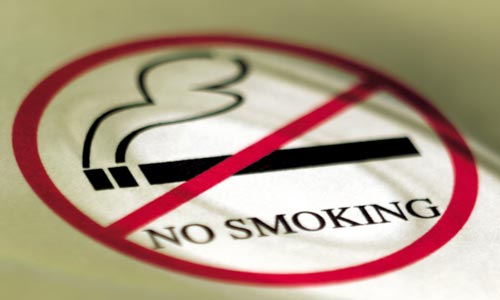
(Ecns.cn)--The 25th World No Tobacco Day last May focused on the theme of industry interference, a problem that continues to greatly hinder anti-smoking efforts in China, points out the Guangzhou-based Time Weekly.
By early 2011, China had seen no decline in smoking despite entering the World Health Organization Framework Convention on Tobacco Control (FCTC) in 2006, according to a Beijing Times report. Instead, 200 million more people suffered from the effects of second hand smoke from 2008 to 2010, the report said.
The report also revealed that 3 million deaths in China would be caused by smoking in 2030, accounting for 25 percent of the total, compared with 2-3 percent for AIDS.
"The situation will be even worse in the next 20 years," said Yang Gonghuan, deputy director of the National Center of Disease Control of China.
"So far, 173 nations, including China, have pledged together to implement the convention on tobacco control," Michael O'Leary, WHO representative in China, said in a speech on World No Tobacco Day.
"However, these tobacco control efforts are systematically opposed by the tobacco industry. Government, non-governmental organizations, academia and individual citizens can all act to put an end to tobacco industry interference," O'Leary pointed out.
Zhong Nanshan, who specializes in respiratory problems at China's Academy of Engineering, also expressed opposition to such interference, referring to the State Tobacco Monopoly Bureau (STMB) and the State Tobacco Company (STC), both of which are participating in anti-smoking campaigns.
"The organization that produces and sells tobacco is the same one. The production puts profits first, while tobacco control puts people's health first. I don't understand why they are together. The mechanism needs changes," Zhong noted.
The problem is clearly reflected in Jiang Chenggang's triple identities as the general manager of the STC, the head of the STMB and a Party member of the Ministry of Industry and Information Technology, the senior authority over the state tobacco monopoly.
"One of the biggest obstacles to China's anti-smoking efforts lies in the fact that the tobacco producer is also the tobacco control campaigner," said Yang Gonghuan, director of the National Tobacco Control Office. At present, it is urgent to have the STMB excluded from FCTC implementation, and the government should also extricate itself from the management of enterprises, Yang added.
"Besides, the tobacco firms have been misleading the government, claiming that rigorous enforcement of anti-smoking laws would result in a sharp decrease of tax and fiscal revenue," Yang said. "However, it is not true. Even with all the regulations being fully put into practice, the population of Chinese smokers won't decline quickly, because, on one hand, smoking is still legal in China, and on the other hand, it's hard for addicts to quit."
In fact, the net contribution of the tobacco industry to the economy declined sharply from 1998 to 2010, given high costs such as medical and labor, which outnumbered contributions in taxes and employment, according to the Beijing Times report.
The "Health Hazards of Smoking," a report issued by the Ministry of Health in May, also found that the smoking rate among people aged from 15 to 69 in China declined by only 0.08 percent from 2002 to 2010.
"More than half of all males aged 15 and over smoke. Obviously, there are a lot of teenagers in that number. As many as 740 million Chinese people are exposed to passive smoking. People are underestimating the harmful effects," Health Minister Chen Zhu told China Daily.
"Everybody knows smoking is bad for their health, but they know little about the dangers of smoking. Because of this, they don't fully realize the importance of tobacco control, and smokers are less motivated to quit. This poses a great obstacle to tobacco control in China," said Wang Chen, vice president of Beijing Hospital who played a leading role in compiling the report.
More than three-quarters of those surveyed lack sufficient knowledge of the dangers caused by smoking, and more than two-thirds are unaware of the hazards of passive smoking. On top of that, 54.7 percent of the surveyed medical workers underestimate the effects of low-tar cigarettes, said the report.
In addition, tobacco companies have proven to be wolves in sheep's clothing by trying to build a positive image through public welfare efforts.
According to the Chinese Association on Tobacco Control, a total of 52 tobacco companies donated to or sponsored 79 public welfare activities in 40 cities and counties from September to December 2009.
In November 2010, China's State Tobacco Monopoly Administration established two funds for the China Women's Development Foundation and donated 10 million yuan to support two welfare projects.
Meanwhile, some tobacco firms including Hongta Group, Guangdong Shuangxi and Shanghai Tobacco have been nominated among the top 10 socially responsible Chinese enterprises.
Such moves have triggered heated debates online and seen as obvious violations of the WHO tobacco control convention, which requires participating countries to ban tobacco advertisements, promotion and sponsorship, reported China Daily.

Copyright ©1999-2011 Chinanews.com. All rights reserved.
Reproduction in whole or in part without permission is prohibited.